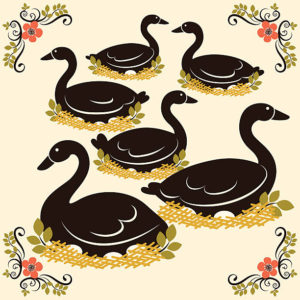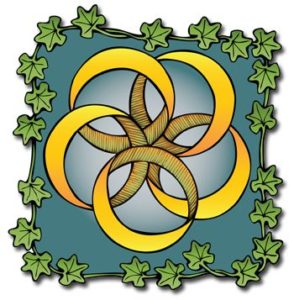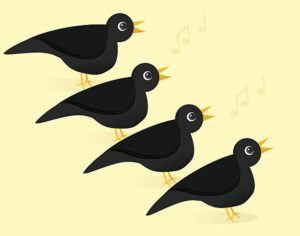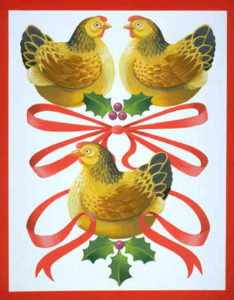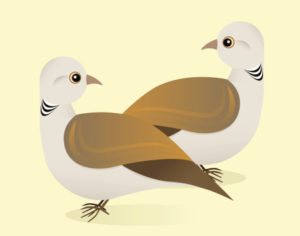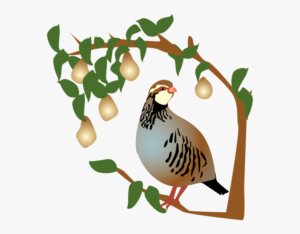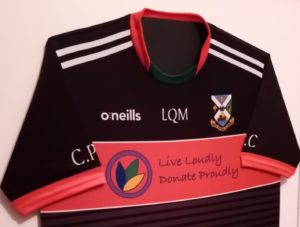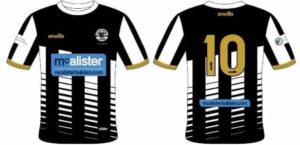On the seventh day of Christmas my true love gave to me… Seven swans a swimming.
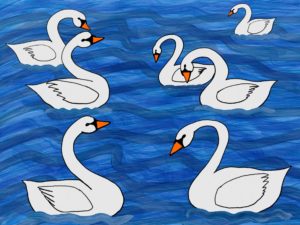
If someone delivered seven swans to my door, they wouldn’t be a-swimming. Not unless there was a huge pond delivered as well. So, imagine them on a lake, or better still, the sea, with tides, currents, and waves as they do that serene glide along while paddling busily and invisibly under the waterline.
Nurses don’t always welcome the stereotypical references to themselves as saints, super-heroes, and angels, especially over the last 18 months. However sincere and kind the references are intended to be, and however high the quality of care we receive, it is better to remember it is delivered by human beings. People who, just like all of us, have their own worlds beyond what we see.
Sometimes their families are in other countries, sometimes ill-equipped to respond to the pandemic. Travel reduced or just not possible. Time off work is harder to manage as staff numbers drop hugely due to the virus and the isolation precautions that must be taken, especially when working in close contact with the most vulnerable people.
It takes its toll. They get tired and emotional like the rest of us. They bruise, weaken, break, and need care and compassion like the rest of us. Often more, given the unrelenting hours they give, soaking up our fears and frailties as they focus, keeping in mind details of medications, doses, timings, symptoms, numbers on the monitors, taking instructions from the team, filling in the notes and forms, handing over to the next shift smoothly and accurately.
Some step out of clinical work for a while, or at least away from the full-time intensity of its frontline. Others have left the profession completely. Inside the NHS there are now some, not enough, wellbeing hubs and health and wellbeing conversations trying to support staff. Outside, others such as the Laura Hyde Foundation try “…to ensure that all medical and emergency services personnel have access to the best mental health support network available”.
With all that fragility they strive to make it work. And seeing our caring nurses as people like us rather than angelic beings make the quality of care and attention not less but much more remarkable. It’s also a reminder that we need to care back.
And yes, like the rest of us, there may be one out there who’s having a bad day, or more, and seems unable to keep a bad mood to themselves. Did you meet that one? Are they always like that? Do you know why?
There are many sobering sights in a hospital but one of the hardest to understand is a poster in various forms about zero tolerance of physical and verbal abuse against staff, against nurses and doctors. There are some things that should never need to be said. But since they do, then they must.
There are other things on the walls in our hospitals as well. Thank-you cards. To named staff or staff in general, for quality of care, for small kindnesses, for excellence. That’s as it should be. That makes it better for all of us. That’s what you’d like to see prevail should you find yourself in those corridors. People who, for all our human frailties, are giving their utmost in care and compassion and are recognised for it. Acknowledged. Properly paid. Thanked. Respected and loved.
What’s it got to do with organ donation? Well, obviously, there wouldn’t be any without these many, many people who choose to care and pay attention. And our carers need caring for too. Then everybody wins.

